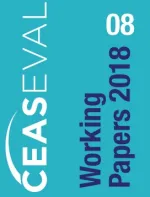The case of Hungary – de Wilde goes wild

CEASEVAL Working Paper No.8
The aim of this paper is to shed some light on the characteristics of politicization of the public debate in Hungary surrounding the EU quota of refugees. We showcase the results of an empirical study that we have conducted using various methods. We look at two episodes of contention (the ‘quota debate’ of 2015 and the ‘quota referendum’ of 2016) in two major public fora: the media and parliament, and analyse data on public opinion during these years.
Since early 2015, the issues of migration in general, and the relocation quota in particular, have been captured and used by the government to win popularity and to frame the political discourse in the public sphere. To achieve this, a unique mass-manipulation technique has been developed – the so-called ‘moral panic button’. This is a long-term, high-cost manipulation technique which monopolizes all forms of media and reduces the room for manoeuvre of non-governmental actors.
As to the concrete characteristics of the quota debate in these trends, (1) politicians are the main actors in the media; the main frames used are embedded in and serve the political interests of the government. (2) With some exceptions, the quota debate gets detached from other, concrete issues and experiences in Hungary, and is discussed in the context of the government’s interests in local and European politics. (3) As for parliament, none of the parties find the quota an adequate answer to the refugee crisis. The overall attitude of parliament is not pro-refugee: even the leftist and more liberal parties employ a careful rhetoric, emphasizing immediate help for those in need, but avoiding the oft-quoted accusation of being ‘migrant-lovers’.
We can conclude that even though the issue of migration – and the relocation quota in particular – has reached a high level of salience in Hungary, because of the uniquely strong role of the government, the theoretically crucial element of the politicization process – i.e. the ‘competitive representative claims-making in the public sphere’ (de Wilde, 2011: 572) – is missing.